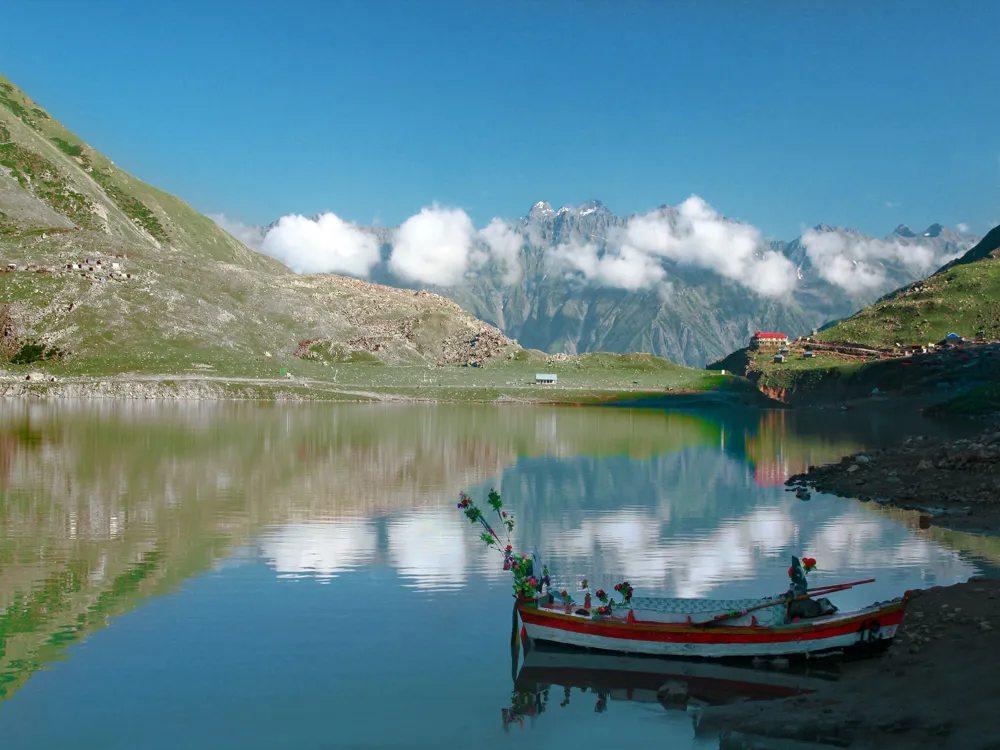Nestled in the picturesque landscape of Jharkhand, Hazaribagh National Park stands as a magnificent testament to India's natural beauty and biodiversity. Covering an area of approximately 184 square kilometers, this park is a haven for wildlife enthusiasts and nature lovers alike. The name 'Hazaribagh' translates to 'a thousand gardens', and true to its name, the park is a mosaic of lush forests, scenic meadows, and vibrant flora. It's a part of the Chotanagpur plateau, renowned for its rich mineral resources and diverse topography. The park's terrain is defined by its hilly topography, steep slopes, and numerous seasonal streams. The unique ecological conditions foster a rich variety of flora and fauna. Among the dense sal and bamboo forests, one can encounter an array of wildlife including tigers, leopards, sloth bears, and several species of deer. The park is also a bird watcher's paradise, home to a multitude of avian species, both resident and migratory. Historically, Hazaribagh National Park holds significant importance. It was established in 1954, marking it among the older conservation efforts in India. The region's history dates back further, with ancient rock paintings and artifacts indicating early human habitation. This blend of natural beauty and historical significance makes the park not only a biodiversity hotspot but also a cultural treasure. Visitors to the park can experience its beauty through various safaris and nature trails. The watchtowers strategically placed throughout the park offer panoramic views and opportunities to spot wildlife in their natural habitat. The park's conservation efforts focus on preserving its natural ecosystem while promoting sustainable tourism, ensuring that the beauty of Hazaribagh National Park can be enjoyed for generations to come. The architecture of Hazaribagh National Park is a blend of natural landscape and thoughtfully designed structures that enhance the visitor experience while preserving the park's ecological integrity. The park's layout has been carefully planned to minimize human impact on the wildlife and natural habitats. The network of roads and trails within the park is designed to offer extensive access while ensuring minimal disturbance to the wildlife. The main gate of the park exemplifies traditional architectural elements, blending seamlessly with the surrounding forest. The entry point sets the tone for the natural experience ahead, with its rustic design and use of local materials. Inside the park, the visitor centers and administrative buildings are constructed with eco-friendly principles in mind. Local stone, wood, and other sustainable materials are used, echoing the park's commitment to environmental conservation. The watchtowers and hideouts, strategically placed for wildlife observation, are architectural marvels in themselves. They are designed to provide an unobstructed view of the park while being camouflaged within the natural surroundings. These structures are minimalistic, ensuring they do not detract from the natural beauty of the park. The safari routes within the park are another architectural highlight. These routes are carefully planned to cover diverse terrains and habitats, offering visitors a comprehensive experience of the park's biodiversity. The routes are maintained to ensure safe and comfortable travel while having a negligible impact on the natural environment. Accommodation facilities in and around Hazaribagh National Park, including lodges and rest houses, are built with an emphasis on eco-tourism. Traditional designs, coupled with modern amenities, provide a comfortable stay for visitors while allowing them to remain close to nature. Overall, the architecture of Hazaribagh National Park is a testament to how human structures can coexist harmoniously with nature, enhancing the beauty and experience of a natural reserve. The ideal time to visit Hazaribagh National Park is from October to April. During these months, the weather is pleasant, and the chances of spotting wildlife are higher. The park might be closed during the monsoon season due to heavy rains and difficult terrain conditions. Opt for early morning or late afternoon safaris for the best wildlife viewing experiences. Always follow the park rules and guidelines during safaris and respect the natural habitat of the wildlife. Binoculars and cameras are a must for bird watching and capturing the scenic beauty of the park. Book your accommodation in advance, especially during peak tourist seasons. Choose eco-friendly lodges or rest houses near the park for an immersive experience. Ensure to have sufficient cash, as ATMs and card facilities might be limited in remote areas. Carry basic first aid, insect repellents, and necessary medications. Stay hydrated and protected from the sun. Always stay within the designated areas and never venture out alone or without a guide in the park. Practice responsible tourism by not littering and disturbing wildlife. Use eco-friendly products and minimize your carbon footprint. Participate in conservation efforts, if available, and learn about the local ecology and culture. Hazaribagh National Park is well-connected and can be reached by various modes of transport. The nearest airport is in Ranchi, about 91 kilometers away. Regular flights connect Ranchi to major cities in India. From Ranchi, one can hire taxis or take buses to reach the park. For those preferring train travel, the nearest railway station is Hazaribagh Town. It's well connected with major cities in India. From the railway station, taxis or local transport can be used to reach the park. Road connectivity to Hazaribagh National Park is excellent, with well-maintained roads leading to the park from neighboring cities and towns. Self-driving or hiring a car is a viable option for a more flexible and personal travel experience. Read moreOverview of Hazaribagh National Park, Hazaribagh, Jharkhand
architecture of Hazaribagh National Park
Tips for Visiting Hazaribagh National Park
Best Time to Visit
Safari and Sightseeing
Accommodations and Facilities
Health and Safety
Environmental Responsibility
How To Reach Hazaribagh National Park
Hazaribagh National Park
Hazaribagh
Jharkhand
NaN onwards
View hazaribagh Packages
Weather :
Label : Must Visit
Tags : National Park
Timings : 6:00 AM - 8:00 PM
Time Required : 2-3 hrs
Entry Fee : Indians: INR 50,
Foreigner Nationals: INR 100,
Entry Fee for vehicle:
Bus (full) - INR 75,
Mini Bus - INR 50,
Car - INR 20,
Motor Cycle - INR 10,
Taxi - INR 25
Planning a Trip? Ask Your Question
Hazaribagh Travel Packages
View All Packages For Hazaribagh
Top Hotel Collections for Hazaribagh

Private Pool

Luxury Hotels

5-Star Hotels

Pet Friendly
Top Hotels Near Hazaribagh
Other Top Ranking Places In Hazaribagh
View All Places To Visit In hazaribagh
View hazaribagh Packages
Weather :
Label : Must Visit
Tags : National Park
Timings : 6:00 AM - 8:00 PM
Time Required : 2-3 hrs
Entry Fee : Indians: INR 50,
Foreigner Nationals: INR 100,
Entry Fee for vehicle:
Bus (full) - INR 75,
Mini Bus - INR 50,
Car - INR 20,
Motor Cycle - INR 10,
Taxi - INR 25
Planning a Trip? Ask Your Question
Hazaribagh Travel Packages
View All Packages For Hazaribagh
Top Hotel Collections for Hazaribagh

Private Pool

Luxury Hotels

5-Star Hotels

Pet Friendly





















